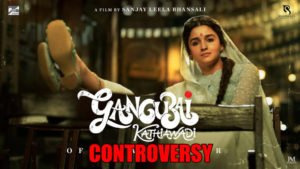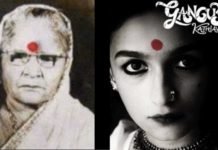A film adaptation is the transformation of a work or story, in whole or in part, to a feature film. Adaptation is generally understood as the modification of a work to create another work, for example adapting a novel to make a motion picture, or the modification of a work to make it suitable for different format of exploitation. Therefore, in order to reproduce and publish an adaptation, ordinarily, authorization must be obtained from both the owner of the copyright in the original work and of the owner of copyright in the adaptation.
Do Life Rights Need To Be Acquired?
There are case law that says that in certain cases life rights do not need to be acquired such as where the work is based on public records; however, it is best if a producer analyzes his or her specific situation and make an informed decision. For instance:
- If a project is based on the story of a person and contains intimate details that may not be in public record, then a producer may need to acquire life rights.
- If a project is based on a previously written story about a person, then a producer needs to obtain a license from the author of the work and may also need to acquire life rights from the person in question.
- If a project is strictly based on non-fictional facts and events that a producer has obtained solely through researching public record, then he or she may not need to acquire life rights from a person.
- If it is unclear whether life rights need to be acquired, then a producer may want to avoid the risk of being sued and acquire life rights from a person or completely fictionalize the story.
Keep in mind, there are clear benefits in securing life rights from a subject person regardless of the legal analysis, such as it may encourage the person to give a producer more substantive information to enhance the project and it will reduce the risk of a potential defamation or invasion of privacy claim by the person (avoiding a significant amount of time and legal fees).Also, having an agreement in place with a person will make it easier for a production company to obtain errors and omission insurance.
In light of the important role novels have played in service to filmmaking, it is not surprising that, when faced with the prospect of evaluating a film based on a novel, critics often ground their judgments in assessments of the effectiveness of the adaptation. However, the recent order of a Mumbai court involving the Gangubai Kathiawadi film, casts a shadow of doubt on adapting a novel into a cinematograph film.
In a case filed by Babuji Shah(Plaintiff), purported son of Gangubai Kathiawadi seeking injunction against authors of the novel ‘The Mafia Queens of Mumbai’ to restrain them from publishing, selling or creating third party rights on their novel, as well as to injunct Bhansali Productions from producing the film “Gangubai Kathawadi” or airing the film based on the novel, court of additional chief metropolitan magistrate in Mumbai has summoned actor Alia Bhatt, filmmaker Sanjay Leela Bhansali and two writers in connection with an alleged criminal defamation case filed by Babu Rawji Shah connected to the upcoming film Gangubai Kathiawadi. [Update: Read order here].
The Film ‘Gangubai Kathiawadi’ starring Alia Bhatt, directed by Sanjay Leela Bhansali and produced by Bhansali Productions and Pen India Limited (Producers) is an upcoming Indian Hindi-language biographical crime film based on a chapter about Gangubai Kothewali from the novel ‘Mafia Queens of Mumbai: Stories of women from the ganglands’ which is an Indian 2011 non-fiction crime novel written by Hussain Zaidi with original research by reporter Jane Borges.
After the release of the film promo, the Plaintiff has alleged people in the vicinity are now are asking rates of his daughter and daughter-in-law and demanding sexual pleasure from them. The Plaintiff has alleged that his mother is shown as a prostitute in the novel as well as in the Film. Further it is shown that she was the brothel keeper and mafia queen. These things are tarnishing the image of his deceased mother as well as his family.
The novel was already published in the year 2011; however, the Plaintiff has claimed that he had no knowledge of the novel and came to his knowledgevia after viewing the promo of the upcoming Film on social media and news . In the novel as well as the promo they have not only used the name of his mother but also used her surname along with the residential area i.e. Kamathipura, where his deceased mother was identified and had a reputation in the society, before her death. Plaintiff claimed his mother had always worked for the rights of sex workers and the prevention of human trafficking. The Plaintiff has stated his consent was not obtained by all the accused (persons who have been summoned) prior to the publishing of the novel and thereafter without his consent and knowledge , the promo has been released.
The Mumbai City Civil Court on February 17, 2021 had dismissed the suit and refused to grant any relief to the Plaintiff while accepting the arguments made on behalf of the Producers and others that the suit was barred by the law of limitation since the novel was released in 2011 and had been in public domain for 10 years. Further, the story of the life of Gangubai has been widely reported and in public domain without there being any action taken in relation to the same.
See our coverage here
The court noted that no consent was obtained from Plaintiff prior to the publishing of the novel or release of the promo and that portraying the image of deceased Gangubai without consent of family members amounted to defaming her image. The court stated that even though the novel was released in 2017, the cause and effect of the act of defamation ensued only after the promo was released, considering the large – scale viewership of TV channels, films, OTT platforms and other social media mediums. Observing sufficient grounds, the court decided to proceed against the authors of the novel and the Producers for offence of defamation as per Sections 500, 501 and 502 of the Indian Penal Code.
“Even if it is considered that, Kathiawadi was a prostitute, that does not mean that anybody has permission or write to show or mention her as a prostitute in public,” the order reads.
As covered in detail in our post here, it has been contended in several cases that since defamation is a personal wrong, the legal right does not survive and is not actionable after the death of the person in view of principle laid down in the maxim ‘actio personalist monitor cum persona’.
However it is pertinent to note that unlike in a civil claim, under Indian Penal Code, Section 499 provisions for family members of the deceased to sue for defamation.
Section 499 in The Indian Penal Code
Defamation. —Whoever, by words either spoken or intended to be read, or by signs or by visible representations, makes or publishes any imputation concerning any person intending to harm, or knowing or having reason to believe that such imputation will harm, the reputation of such person, is said, except in the cases hereinafter expected, to defame that person.
Explanation 1: It may amount to defamation to impute anything to a deceased person, if the imputation would harm the reputation of that person if living, and is intended to be hurtful to the feelings of his family or other near relatives.
In M.P.Raju and others Vs. T.G.Chacko and others, 2005 SCC Online 430, the Kerala High Court observed “Defamation is actionable both under the civil law and under the criminal law. The expression “person” appearing in the body of Sec.499 of the IPC would not normally cover a deceased person and that obviously is why Explanation-1 has been added to the Section. A claim for compensation for defamation under the civil law may not be maintainable in respect of defamation of a deceased person on the principle that a personal right of action dies with the person. (Action Personalis Moritor Com Persona). But still the law makers felt that defamation of a deceased person can legitimately give rise to a criminal prosecution for the offence of defamation against a deceased person. It is easy to understand the rationale behind the law. Defamation is made punishable as a crime only because of the potential of such offence to endanger law and order. The criminal law endeavours to maintain peace, tranquility, law and order in society and anything which is likely to threaten them and result in breach of peace is made actionable under the criminal law. This rationale underlies Explanation-1 of Sec.499 IPC also. Any person may get triggered to commit offences and thus cause breach of the peace if a deceased member of his family or other near relative of his were defamed. Accepting this reality in life, Explanation-1 has been added to Sec.499 IPC to ensure that defamation of a deceased person is also culpable. But the law is very careful. The offending publication should not only be defamatory to the deceased. It must also be intended to be hurtful to the feelings of his family or other near relative, it is stipulated. Every lineal descendant or every person interested in the deceased cannot complain of defamation against the deceased. Firstly, such complainant must be a member of the family of the deceased or must be a near relative of his. The words “family or other near relative” significantly are not defined in Sec.499 IPC. Such expressions are not defined in the Indian Penal Code. The expressions “family” and “other relative” are expressions which can have different shades of meaning depending on the circumstances and the purpose which a statutory provision is intended to achieve. Any attempt to understand the sweep, width and amplitude of the expressions “family or other near relative” must certainly be made conscious of the purpose which Sec.499 IPC and Explanation-1 thereto have got to achieve. Prevention of breach of peace is the signature tune underlying the law of crimes. It is the same when it concerns Sec.499 and Explanation-1 thereto. The members of the family are assumed to be near relatives going by the language in Explanation-I. It is, however, stipulated that there can be other near relatives also. It is not every one who can complain of the defamatory imputations made against the deceased. A smaller group or class of persons are specified. By nature of their relationship with the deceased or by their peculiar proximity to the deceased certain persons may be triggered to threaten law and order when a deceased person is defamed. The law assumes that members of the family may be so triggered. It is not every distant member of the family who can justify such improper triggering. They must be sufficiently close and proximate to the deceased. This is the statutory rationale underlying Sec.499 of the IPC and Explanation-1. Therefore, according to me, the expressions “family or other near relative” must receive a stricter and narrower construction. Judicial interpretation of the expressions ‘family’ or ‘other near relative’ in other statutes or in different contexts may not be of crucial assistance. The meaning that is to be assigned in the given context is important. One must hence remember the purpose – abating any threat or danger to peace and tranquility in the society on the apprehension that a person other than the deceased may be triggered to commit breach of the peace, in mind while ascertaining the sweep of the expressions. The family in the Indian context, generally stated, may include a large number of persons. The understanding of the concept may also have to be in the background of the given social realities and norms prevailing in the society. Community of interests as members of the family may have to be taken into account. In these circumstances, I am satisfied that the expression ‘family’ can be understood to mean only the nuclear family namely, husband, wife and children. Any attempt to widen the scope of the expression ‘family’ would not be conducive to the purpose which Sec.499 and Explanation-1 are expected to serve. I find no precedents on the point. The learned counsel for the rival contestants are unable to place before me any binding or persuasive judicial thought on the subject. So, construing from first principles, I take the view that a limited narrow circumference has to be fixed for the expression ‘family’ and I reckon the expression ‘family’ to include only husband, wife and children.”
It would be interesting to note the submissions of the authors of the novel and the Producers given that filmmakers have always taken the defence that their film have been adapted from a novel which is in public domain, while finding that there are sufficient grounds to proceed against the accused, the court has asked all the above-mentioned to appear before it on 21st May 2021.

















